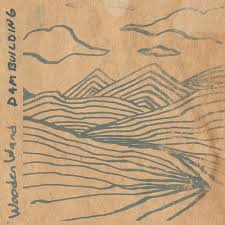Dropping the needle on Farmer’s Corner, you might think that James Toth, who’s worked for many years under the nom de plume Wooden Wand, has settled comfortably into domestic bliss with his wife and their sheepdog. Where his last three albums progressed towards a marriage of earthy, electric psychedelia and ear-splitting No Wave gravel, FC opening track "Alpha Dawn" is an easygoing, upbeat trip to the country. But underneath the pastoral bounce lie persistent questions about the nature of being settled – not stalking like a hungry predator, but ancient and immobile, truths as hard and as well-hidden as bedrock.
"In the summer, it’s hard to remember a time when we felt the slightest bit cold," muses Toth in the song’s bridge. "I wonder if that is how these days will feel, when all that we’ve loved has grown old?" That finger of cool breeze whipping through the sunny meadow sets the tone for the record, a series of explorations into the restlessness that taking it easy tends to provoke, related in a style that short story author Raymond Carver might have appreciated. It doesn’t have to be Toth’s own apprehensiveness for a few understated turns of phrase to evoke a complex array of sensations. He doesn’t have to be the haunted frontiersman or highwayman burying his treasure – or erstwhile partner, or lover, or whatever you take "everything I could stand to lose" to be – beneath the riverbed in ‘Dam Building’. Like master storytellers of every stripe, Toth contains multitudes.
For all the turmoil beneath the surface, the musical setting is serene, courtesy of a rotating cast of top-shelf collaborators that includes guitarist William Tyler, bassist Darrin Gray, and Nashville experimental folk group Lylas. The tracks were recorded in three different studios in two different states over a couple of months, pushing the players to achieve synchronous orbit without letting them get caught in the doldrums of a familiar routine. The experiment was largely a success, imparting a lively lucidity to the hypnotic blues drones and loping country-rock that color the record. Those settings, in turn, are a good fit for the loose narrative; insights dawn on the residents of Farmer’s Corner slowly over time, rather than in the haze of a psychedelic comedown as on Harem of The Sundrum & The Witness Figg, another of Toth’s acoustic-centric records.
There are no percussion instruments, relying on rhythm guitars and especially the jazz-inflected bass for forward motion. Even without a player dedicated solely to keeping the time, ‘Port Of Call’ expands in an intertwined sequence of funky, organic motorik guitar workouts and collapses into verses about getting off the grid, just at the point where you expect another song to begin. The track which might have benefitted the most from a drummer is the hard-rock-leaning ‘Adie’, which seems constantly on the verge of taking off but never quite makes it. However, the ineffective plea at the center of the piece, "Adie, don’t let me be the dust that settles," suggests that going nowhere is the point.
There may be better points of entry into Toth’s multifaceted catalog; 2012’s Blood Oaths Of The New Blues is a good compass in the labyrinth, with the ace ensemble of Alabama musicians who also performed on Briarwood and Wooden Wand And The World War IV deftly supporting songs that represent a broad swath of the idioms Toth has explored during his twenty years of constant performance and recording. Farmer’s Corner is a slow burner whose finer points emerge on repeat listens, but put it on while you do some chores, or during your daily commute, and it’s bound to sneak up on you.
<div class="fb-comments" data-href="http://thequietus.com/articles/15509-wooden-wand-farmers-corner-review” data-width="550">


